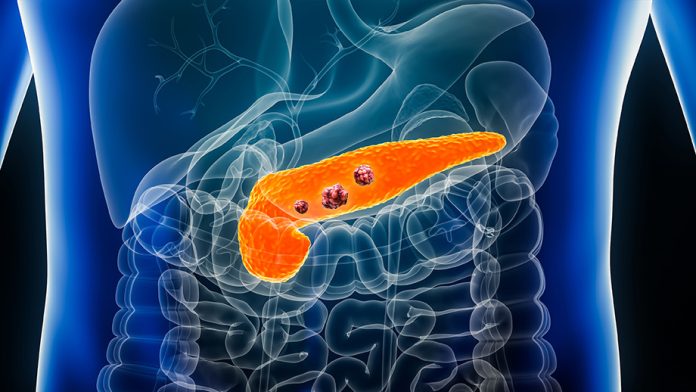In a groundbreaking development, researchers, including Rice University chemist James Tour, have unveiled a targeted nasal delivery method that could revolutionize the treatment of pancreatic cancer, one of the deadliest forms of the disease. This innovative approach repurposes WR-2721, also known as amifostine—a radioprotective prodrug traditionally administered intravenously. Currently, this promising method is advancing to phase 1 and 2 clinical trials, with the objective of protecting healthy tissues from radiation damage while enhancing patient outcomes in the ongoing battle against pancreatic cancer.
Pancreatic cancer remains a leading cause of cancer-related fatalities, claiming nearly 52,000 lives annually in the United States, according to the American Cancer Society. The cancer’s proximity to vital organs complicates treatment, as high-dose radiation therapy often results in severe gastrointestinal toxicity. For patients with tumors that are not surgically removable, therapeutic options have been limited.
Building upon nearly two decades of research funded by the Defense Advanced Research Projects Agency, Tour’s team has pioneered this new delivery method through collaborations with the University of Texas MD Anderson Cancer Center and Xerient, a biotech startup founded with the support of both institutions in 2019.
Tour expressed optimism about the breakthrough, stating, “We’re pushing the boundaries of radiation treatment while safeguarding healthy tissue. This advancement will hopefully soon help patients who previously had limited options in treatment.”
Prior studies indicated that while intravenous amifostine effectively protects healthy tissues during radiation therapy, its side effects—including nausea and hypotension—have restricted its widespread use. Tour’s team explored oral administration to selectively shield the gastrointestinal tract but faced challenges with stomach acid degrading the drug.
Recent preclinical studies in mouse models have showcased remarkable results: Mice receiving oral amifostine along with simulated radiotherapy achieved a 100% survival rate after ten days, in stark contrast to untreated mice. In experiments with pancreatic tumor models, the combination of amifostine and stereotactic body radiotherapy nearly tripled the survival time of the subjects, suggesting that similar outcomes could significantly extend survival for human patients.
The innovative delivery method, developed by Xerient and partially funded by the Cancer Prevention and Research Institute of Texas, utilizes a nasoduodenal tube or a coated oral tablet to bypass stomach acids and deliver amifostine directly to the duodenum. This targeted approach promises to shield healthy cells from radiation damage while minimizing systemic side effects.
“The duodenum is particularly vulnerable during radiation therapy for pancreatic cancer,” stated Guy Yachin, co-founder and CEO of Xerient. “Our method protects this critical area while enabling aggressive treatment of pancreatic tumors.”
This advancement allows for the safe delivery of high-dose radiation to pancreatic tumors, an option that has been previously limited by the risk of gastrointestinal injury. With FDA approval on the horizon, the research team is set to initiate phase 1 and 2 clinical trials to assess the safety and effectiveness of the new delivery method.
This innovative approach could mark a significant turning point in the fight against pancreatic cancer, offering hope to patients who have long faced limited treatment options.
For further updates, stay tuned to Newspot Nigeria.
Source: Rice University
Share your story or advertise with us: Whatsapp: +2347068606071 Email: info@newspotng.com






 Seize Your Opportunity: Top 24 Scholarship Opportunities You Can’t Afford to Miss
Seize Your Opportunity: Top 24 Scholarship Opportunities You Can’t Afford to Miss 










